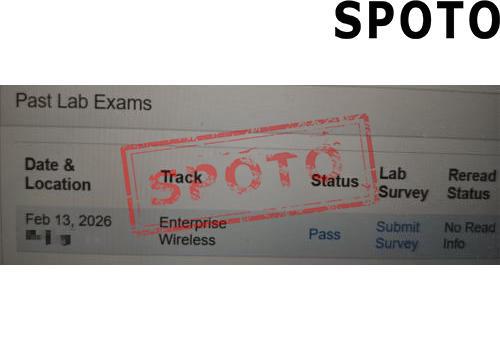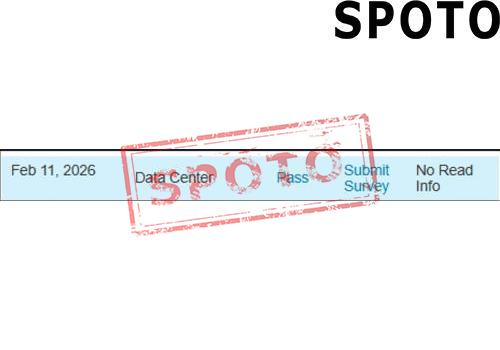
When it comes to CCIE (Cisco Certified Internetwork Expert) certification, you're entering a world of specialized networking expertise that opens up a range of advanced career opportunities. But with multiple tracks to choose from, how do you decide which one aligns best with your goals? Two popular options are the CCIE Service Provider (SP) and CCIE Wireless tracks. Both are incredibly prestigious, but they cater to different networking fields.
In this article, we'll break down the specifics of both certifications, exploring their focus areas, skill sets, career prospects, and certifications needed for each. By the end, you'll have a clearer idea of which track suits your interests and long-term career ambitions.
What's the Difference Between CCIE SP and CCIE Wireless?
Before diving into the details of each track, it's important to understand the fundamental differences between CCIE Service Provider (SP) and CCIE Wireless:
-
CCIE Service Provider (SP): This track is all about designing, implementing, and troubleshooting large-scale service provider networks. The focus is on routing and switching, traffic management, and advanced services that support global ISPs, mobile operators, and data centers. Professionals with a CCIE SP certification work on infrastructure that supports millions of users and business-critical applications.
-
CCIE Wireless: This track specializes in the world of wireless networking — from Wi-Fi and Wi-Fi 6 technologies to the more advanced challenges of 5G and Internet of Things (IoT) connectivity. CCIE Wireless is all about designing and optimizing wireless solutions for enterprises, service providers, and large-scale environments where wireless mobility is crucial. It requires deep expertise in radio frequency (RF) theory, wireless security, and network optimization.
Now that you have a general understanding, let's take a deeper dive into both tracks.
CCIE Service Provider (SP): Mastering the Backbone of the Internet
Skills and Knowledge Required for CCIE SP:
- Service Provider Core Routing: CCIE SP professionals work with the core routing protocols such as BGP (Border Gateway Protocol), IS-IS, and MPLS (Multiprotocol Label Switching) to ensure seamless and scalable internet connectivity.
- Traffic Engineering and QoS: Ensuring that networks can handle massive amounts of traffic with minimal delay and ensuring Quality of Service (QoS) for critical applications.
- Carrier Ethernet: Understanding how to implement and manage Ethernet-based services for customers across wide geographical areas.
- Network Security and Automation: Implementing firewalls, DDoS mitigation, and automating service provider networks for efficiency and scalability.
Job Opportunities with CCIE SP:
A CCIE SP professional typically works for large telecommunications companies, service providers, or internet backbone providers. Roles include:
- Service Provider Network Engineer: Design and maintain the large-scale networks that provide internet services to customers.
- Core Network Engineer: Work on routing and switching infrastructure to ensure the network is running efficiently at the backbone level.
- Traffic and QoS Engineer: Specialize in optimizing data flow, ensuring service quality and managing congestion issues in high-traffic environments.
- Network Architect for Service Providers: Design and plan the service provider infrastructure to handle future scalability and performance requirements.
CCIE SP professionals generally focus on working with high-capacity networks that must support global-scale connectivity.
Certifications for CCIE SP:
- CCNP Service Provider: A prerequisite for CCIE SP, it focuses on service provider routing, advanced BGP, and MPLS.
- CCIE Service Provider: This is the main certification for those pursuing this track, covering areas like network automation, QoS, and advanced routing and switching in service provider networks.
CCIE Wireless: Innovating Connectivity in a Mobile-First World
Skills and Knowledge Required for CCIE Wireless:
- Wireless LAN Design and Configuration: Knowledge of Wi-Fi 5 (802.11ac) and Wi-Fi 6 (802.11ax) standards is key, as well as deploying enterprise-level wireless networks that require high throughput and low latency.
- Radio Frequency (RF) Theory: Mastering the principles of RF, signal propagation, interference management, and spectrum analysis to ensure optimal wireless coverage.
- Security in Wireless Networks: Implementing Wi-Fi security protocols such as WPA2, WPA3, 802.1x, and securing wireless data from unauthorized access and threats.
- Advanced Wireless Technologies: Staying up to date with emerging technologies like 5G, Wi-Fi 6E, Wi-Fi mesh networks, and the evolving requirements of IoT devices and smart cities.
- Troubleshooting: Proficient in diagnosing issues in wireless environments, optimizing channel allocation, signal strength, and handling interference in high-density locations.
Job Opportunities with CCIE Wireless:
Wireless network professionals work with enterprises, consulting firms, and service providers to deploy and optimize mobile-first network environments. Some common roles include:
- Wireless Network Engineer: Design and implement wireless solutions for enterprise environments, ensuring robust coverage and security.
- Wireless Security Consultant: Focus on securing wireless networks from unauthorized access and vulnerabilities.
- RF Engineer: Specialize in designing and optimizing radio frequency deployments for various wireless services.
- Wi-Fi Consultant: Offer expertise to businesses on the most effective wireless solutions and network design, optimizing wireless performance in large or dense environments.
As the world moves toward mobile-first networks, wireless connectivity plays a key role in enterprise IT strategies, making this track increasingly vital.
Certifications for CCIE Wireless:
- CCNP Wireless: A stepping stone before the CCIE Wireless, it focuses on wireless LAN design, security, and troubleshooting.
- CCIE Wireless: This certification validates expertise in advanced wireless design, security, and management, covering areas like radio frequency (RF) theory, Wi-Fi design, and wireless troubleshooting.
Which Track Should You Choose?
The decision between CCIE Service Provider and CCIE Wireless comes down to where your interests and career goals lie:
-
Choose CCIE SP if you're excited by large-scale infrastructure, working on the core of the internet, and dealing with service provider networks that must scale globally. This track is ideal if you want to work on network optimization, traffic engineering, and providing internet connectivity to millions of users.
-
Choose CCIE Wireless if you're passionate about wireless technologies, mobility, and providing secure wireless networks for businesses and users. It's the perfect track if you enjoy working with radio frequencies, 5G, Wi-Fi solutions, and the increasing demands of IoT and mobile-first technology.
Conclusion
Both CCIE Service Provider and CCIE Wireless offer lucrative and dynamic career paths with global opportunities. The key difference lies in the focus: CCIE SP is about scaling and managing infrastructure at the service provider level, while CCIE Wireless focuses on designing and optimizing wireless networks to keep up with the mobile revolution.
If you're someone who thrives on working with large-scale, high-performance networks and enjoys the technical challenges of routing, scalability, and traffic management, CCIE SP is the right track for you. On the other hand, if you're driven by the growing demand for mobility, wireless solutions, and innovations like 5G and Wi-Fi 6, then CCIE Wireless might be your perfect fit.
In either case, achieving a CCIE certification in either track will position you as an expert in one of the most rapidly evolving and highly respected areas of networking.










